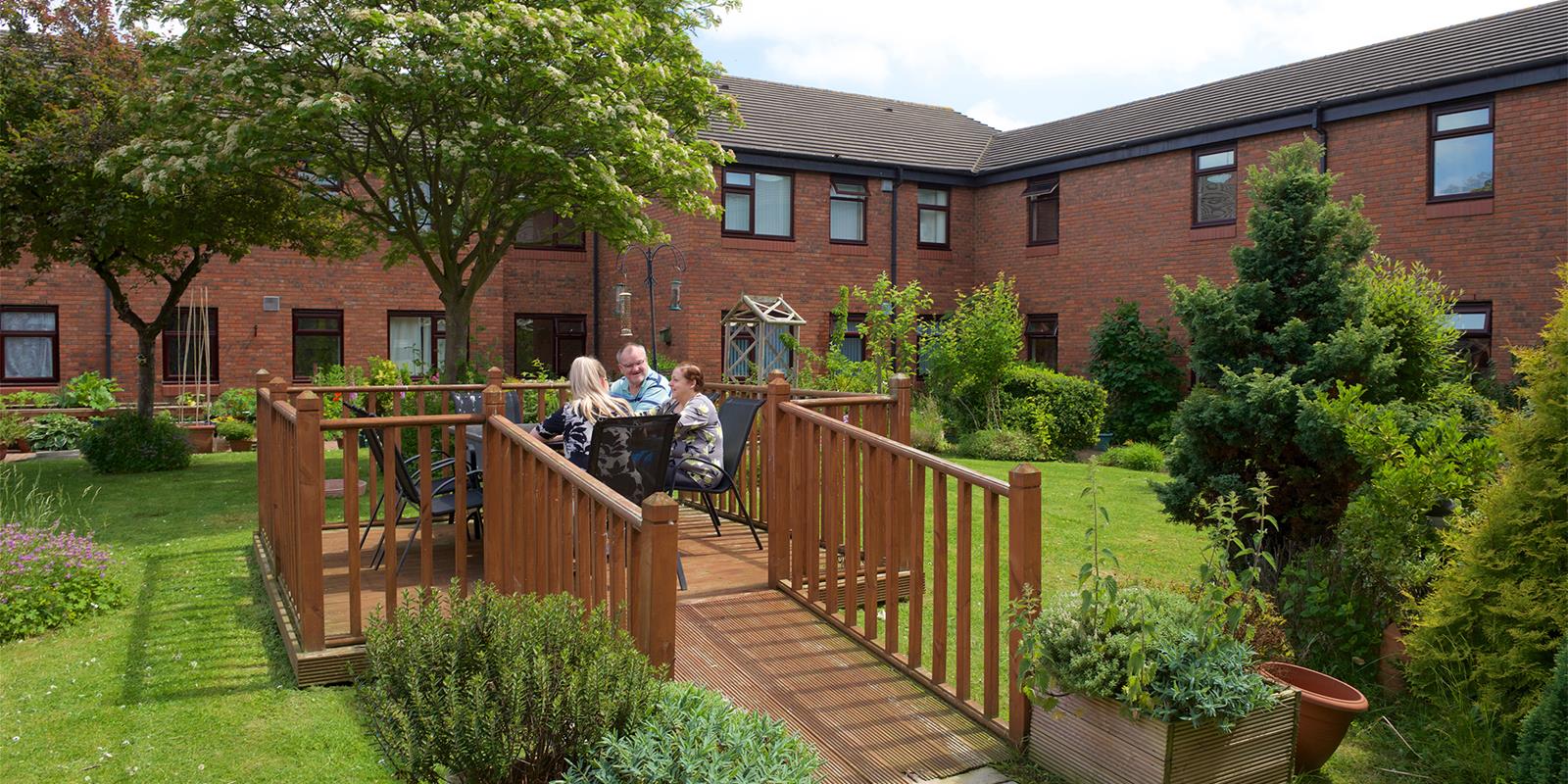About Anti-social behaviour (ASB)
Anti-social behaviour (or ASB for short) is when someone does things that make others feel scared, upset, or uncomfortable where they live. It can make a community feel less friendly and safe.
Different people find different things upsetting, so what bothers one person might not bother someone else. That’s why it’s important to think about how our actions affect others.
Typical examples include:
- Being noisy all the time, for example playing loud music or having loud parties.
- Shouting at people, being rude, or trying to scare them
- Being mean to someone because of their race, religion, or who they are
- Breaking or damaging things, like smashing windows or drawing on walls
- Taking or selling illegal drugs
- Causing trouble after drinking too much alcohol
- Physical violence, including threats of violence
- Misuse of communal areas/public spaces/loitering
- Using your home to do bad or illegal things
- Doing anything else that breaks the law or makes others feel unsafe
Sometimes, another customer’s behaviour might upset you, but if they didn’t mean to cause any harm, we might not consider it to be ASB.
Some examples of behaviour that we don’t consider to be ASB include:
- Parking disagreements (as long as the other driver is parked legally)
- Strong cooking smells
- Cultural differences
- Location of bins
- Dirty looks
- Children playing or making noise
- Isolated incidents of loud music
- Isolated incidents of arguing and shouting
- General household noise (babies crying, children playing, people walking or talking in their homes, doors and windows closing, vacuuming, using white goods, DIY, working from home at a desk)
- Motorbike or car engines starting and running
Accent’s Good Neighbourhood Management and ASB Policies explains how we deal with anti-social behaviour.
It gives clear and fair rules, so we know what is and isn’t okay. We use this policy to help us decide the best way to support our customers with any problems.
Reporting anti-social behaviour
1. Report it to the police
If the anti-social behaviour (ASB) is a crime, call the police. Call 101 if it’s not urgent. Call 999 if it’s an emergency.
Make sure to tell the police if you feel unsafe.
Write down the incident number and police officer's name - you'll need this later.
You can also tell crime stoppers without giving them your name. Go to their website or call 0800 555 111.0800 555 111
Some examples of criminal ASB are:
- Aggressive behaviour
- Assault (e.g. hitting or hurting someone)
- Threats of violence
- Arson (starting fires)
- Gun and knife crime
- Drugs
- Sexual offences
- Vandalism (damaging property)
- Intimidation
- Harassment
2. Let us know about the incident
If the person causing the problem is an Accent customer, or it happened in one of our communities, please tell us.
You can do this by filling in one of our report difficult behaviour forms. You can also email us at customerservices@accentgroup.org or call us on 0345 678 0555.
We will ask for the incident number and police officer’s name so we can talk to them.
We will let the police do their job. If someone is found guilty, we might take further action.
3. What happens next
We’ll update you as soon as we can.
If you feel unsafe or need help, we'll give you support or can put you in touch with support agencies in your area.
Keeping a diary
We might ask you to fill in a diary sheet that records the dates and times of the incidents that are taking place. This helps us see what’s going on and if someone is breaking their tenancy rules.
We’ll ask you to write down:
- How often the incident is happening
- How bad each incident is
- How big an area is affected
- What happened in each incident
- How long each incident lasts
- The impact this is having on you
It’s important that you record incidents accurately so that we’re able to use it as evidence if we need to go to court. It also helps us to decide what to do next.
The Noise App
If you don’t feel safe talking to your neighbour, or if you've already tried and nothing has changed, you can use The Noise App.
It’s free to download and lets you record noise problems and send them to us.
Find out more about The Noise App
Video evidence
If you have any video clips that show the problem, you can email them to customerservices@accentgroup.org
If you’ve told people about anti-social behaviour (ASB) but feel like no one is listening or nothing is being done, you can ask for an ASB case review. This was previously known as the community trigger.
You can ask for this if you’ve reported ASB three or more times in six months.
To do this, contact your local council.
The case review brings different organisations together to look at your case. This can include:
- The police
- The council
- The NHS
- Accent or other housing associations
The aim of this is to solve the problem and stop the ASB.
You can find out more on GOV.UK
When someone reports anti-social behaviour (ASB) to us, we will carry out a risk assessment of the report.
This helps us understand how much help and support the person needs.
If the problem is serious, we will contact you within 1 working day
If the problem is not serious, we will contact you within 5 working days
If you are affected by ASB, we will give you an action plan.
An action plan is a clear list that shows what needs to be done to help fix the problem.
The action plan will show:
- What steps we will take
- What steps you may need to take
- When the steps will happen
If you are affected by ASB, we will usually contact you once a week.
If you want us to contact you less than once a week, that's okay, we’ll talk with you about how often is best.
ASB Policies at Accent
What is hate crime?
A hate crime or hate incident is behaviour that targets someone because of who they are, or who the person responsible thinks they are. This could be linked to disability, race, religion, sexual orientation, or gender identity.
It is still classed as a hate crime even if it is not a criminal offence. What matters is how it is perceived by the person affected or anyone who witnessed it.
Hate crime can include verbal abuse, threats, harassment, physical violence, damage to property, graffiti, or encouraging others to act in a hateful way. This would include, but isn’t limited to, anything you consider to be sexist, homophobic, racist, or transphobic.
Hate crime is a police matter, and we strongly encourage you to report it to the police as soon as possible.
What should I do if I experience or witness hate crime?
If you are in immediate danger, always call 999. If it is not an emergency, you should report the incident to the police by calling 101 or using the police’s online reporting service. Once you have contacted the police, please also let Accent know so we can support you.
What will Accent do?
When you report a hate crime or hate-related incident, our priority is working with you – to make sure you feel supported, and to agree next steps.
When you report a hate crime or hate-related incident, we will:
- Listen and treat your report seriously
- Assess the risk and respond quickly, usually within 1 working day
- Agree an action plan with you
- Work with the police, council, and other partners where needed
Hate-related graffiti on Accent property will normally be removed within 48 hours.
Our focus will be on dealing with the person causing the harm. In very serious cases, and where appropriate, we may consider temporary or permanent rehousing to keep you safe.
How do I report hate crime?
After reporting the incident to the police, you can report hate crime to Accent in whatever way suits you:
- By phone
- In person
- By email or letter
- Through our website
- Via a trusted third party, such as a councillor or support worker
You do not need proof to report hate crime. If you believe the incident was motivated by hate, that is enough for us to act. However, reporting the incident to the police is important so it can be properly investigated.
If you are in immediate danger, always call 999.
What support is available?
We know reporting hate crime can be distressing. We will keep in touch with you and help you access extra support, including specialist victim support services if needed. We also work closely with partner agencies to help prevent hate crime and keep our communities safe.
Read Accent’s anti-social behaviour and hate crime policy
Read Accent’s good neighbourhood management policy




